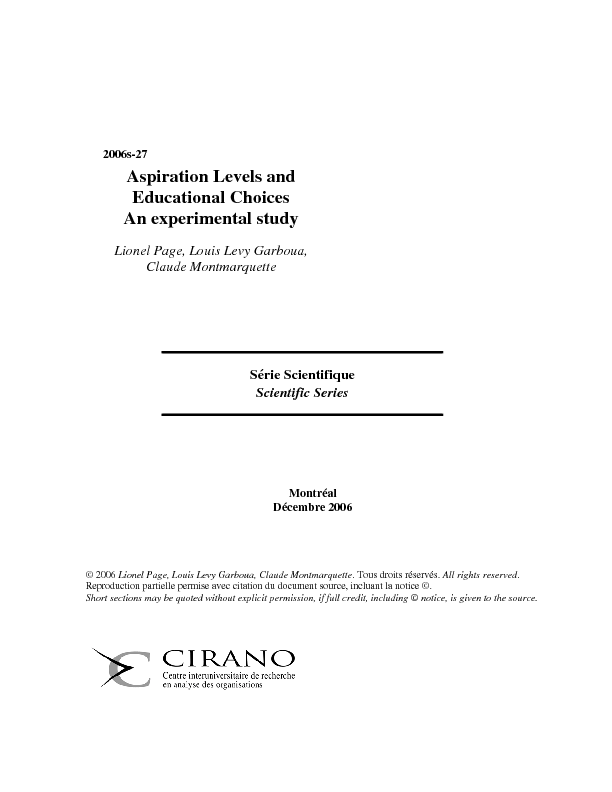Aspiration Levels and Educational Choices
An experimental study
The explanation of social inequalities in education is still a debated issue in economics. Recent empirical studies tend to downplay the potential role of credit constraint. This article tests a different potential explanation of social inequalities in education, specifically that social differences in aspiration level result in different educational choices. Having existed for a long time in the sociology of education, this explanation can be justified if aspiration levels are seen as reference points in a Prospect Theory framework. In order to test this explanation, this article applies the method of experimental economics to the issue of education choice and behaviour. One hundred twenty-nine individuals participated in an experiment in which they had to perform a task over fifteen stages grouped in three blocks or levels. In order to continue through the experiment, a minimum level of success was required at the end of each level. Rewards were dependent on the final level successfully reached. At the end of each level, participants could either choose to stop and take their reward or to pay a cost to continue further in order to possibly receive higher rewards. To test the impact of aspiration levels, outcomes were either presented as gains or losses relative to an initial sum. In accordance with the theoretical predictions, participants in the loss framing group choose to go further in the experiment. There was also a significant and interesting gender effect in the loss framing treatment, such that males performed better and reached higher levels.
[ - ]




